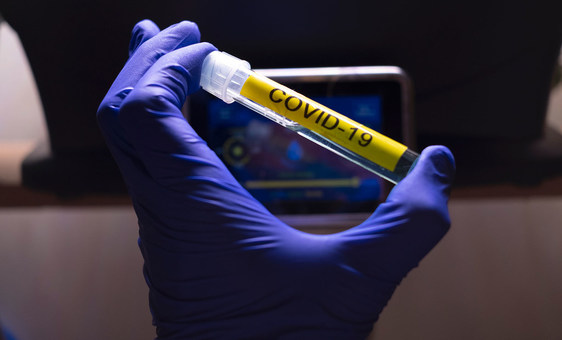“CCMB Unveils Indigenous SARS-CoV-2 mRNA Vaccine Candidate, Pioneering Vaccine Development in India”
The CSIR-Centre for Cellular and Molecular Biology (CCMB) in Hyderabad, which is at the forefront of mRNA vaccine development in India, has announced the development of a potential SARS-CoV-2 mRNA vaccine candidate. The mRNA vaccine technology developed thus far is indigenous, with no technological contributions from elsewhere.
“Atal Incubation Centre-CCMB Team Leads Development of Vaccine Candidate: Promising Results in Mice”
The team at the Atal Incubation Centre-CCMB (AIC-CCMB) led the development of the vaccine candidate. Dr Rajesh Iyer, a scientist involved in the project said, “We observed robust immune response against SARS-CoV-2 spike protein in mice, upon administration of two doses of the mRNA. The anti-spike antibodies generated were found to be more than 90 per cent efficient in preventing the human ACE2 receptor binding to the coronavirus.”
“Advancing Towards Clinical Trials: Pre-Clinical Evaluation of Indigenous mRNA Vaccine Candidate Underway”
Currently, the mRNA vaccine candidate is undergoing pre-clinical challenge studies to evaluate its efficacy to protect against live virus infection. “The current war with Covid-19 pandemic has brought to light many vaccine technologies, and India’s vaccine programme is highly lauded. However, we lacked the potent mRNA vaccine technology, as developed by Moderna or Pfizer/BioNtech to combat Covid-19 in the USA and Europe. The developed technology is different from the mRNA vaccine being developed from Gennova Bio, which is based on self-replicating RNA,” said Dr Madhusudhana Rao, CEO of AIC-CCMB and the lead scientist of this work.
He added that in less than a year since the project’s inception, the AIC-CCMB team was able to establish mRNA vaccine technology and develop a home-grown mRNA vaccine candidate against SARS-CoV-2.
“Beyond Covid-19: Versatile mRNA Vaccine Platform Offers Potential for Addressing India’s Infectious Disease Challenges”
Even though Covid-19 is waning, the vaccine platform holds promise for many infectious diseases that India faces. “This a proof-of-principle wherein we have shown that we can replicate the mRNA vaccine technology end-to-end. The beauty of this technology is in its modularity and rapid turn-around times. That means with significantly less effort, the developed technology can be used to sire vaccine for other infectious diseases like dengue, tuberculosis or malaria,” said Dr Vinay Nandicoori, director of CCMB.
“CSIR’s Forward-Thinking Approach: Cultivating Modern Health Technologies for Self-Reliance”
He also stated that the Council of Scientific and Industrial Research (CSIR), India’s largest research and development organisation under the Ministry of Science and Technology, has undertaken far-sighted initiatives to establish capacities in modern health technologies within India as part of its self-reliance programme. According to Nandicoori, mRNA vaccines are among the most advanced vaccine technologies today, and the world witnessed the effectiveness of the first mRNA vaccines during the pandemic.
“How Vaccines Function: Harnessing mRNA Technology to Educate and Empower the Immune System”
Vaccines work by teaching our immune systems to recognise disease-causing microorganisms and quickly eliminate them when they come into contact with them. mRNA vaccine technology accomplishes this by introducing an mRNA from the microorganism in question. This mRNA in the host cells produces the microbial protein or a portion of it, which trains the immune system to avoid it when the same live microorganism infects the host.











